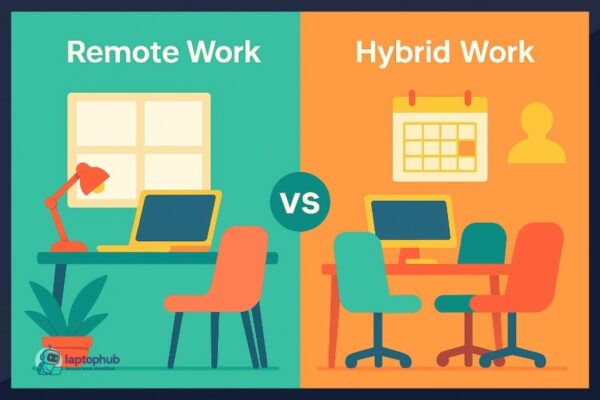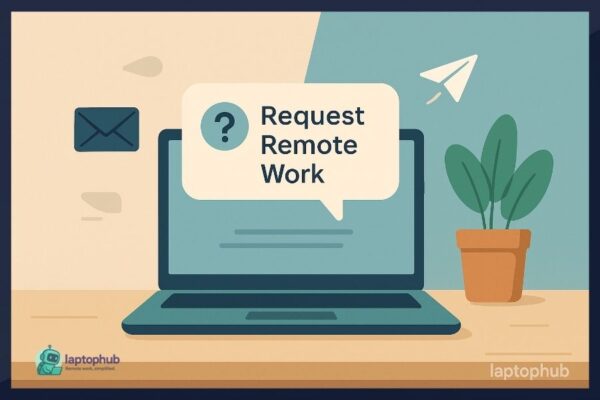Remote work used to be a luxury, something reserved for freelancers or digital nomads. Fast forward to today, and it’s become a core part of modern work culture. But what exactly is remote work, and why is everyone talking about it?
Let’s dive into what remote work really means, explore the benefits and downsides, clear up some common myths, and help you decide if it’s right for you.
💡Key takeaways:
- Remote work allows employees to work outside traditional office environments using digital tools to stay productive and connected.
- It offers numerous benefits like flexibility, improved work-life balance, and cost savings for both individuals and companies.
- Despite its advantages, remote work comes with challenges such as isolation, communication gaps, and security concerns.
- The future of work is increasingly remote, and companies that embrace it with the right tools and policies will thrive.
What is Remote Work?
Remote work means doing your job outside of a traditional office setting. Whether you’re working from home, a café, a coworking space, or a tropical island (with Wi-Fi, of course), you’re still getting things done — just not from a cubicle.
It’s all about leveraging technology to stay connected with your team and complete tasks efficiently, no matter where you are.
📖Also read: Thinking of Remote Work? Here’s What You Need to Know First
A Brief History of Remote Work
Remote work isn’t entirely new. It dates back to the 1970s when IBM experimented with allowing a handful of employees to work from home. But it wasn’t until the internet became fast and reliable that it really took off.
The COVID-19 pandemic accelerated the remote work revolution. Suddenly, millions were working from their living rooms — and many businesses discovered that productivity didn’t dip.
Types of Remote Work
Fully Remote
Employees or freelancers who work entirely from outside a company’s physical office.
Hybrid Work
A blend of in-office and remote work. This is now the go-to model for many companies looking for flexibility.
Freelancing & Gig Work
Independent contractors, creatives, and consultants who often work remotely by default.
Who Can Work Remotely?
Almost anyone with a computer-based role can work remotely. Common industries include:
- Tech & IT
- Marketing & Content
- Design & Creative
- Customer Support
- Accounting & Finance
- Education & Training
Blue-collar and frontline jobs are less likely to go remote, though some automation and telepresence tools are bridging gaps.
Why Remote Work is Gaining Popularity
Remote work is trending — not just for convenience, but because it empowers employees and employers alike. According to Owl Labs, remote workers report higher job satisfaction, and companies are seeing reduced overhead.
Top Benefits of Remote Work
1. Flexible Schedule
You can start your day early, take breaks when needed, and work during your peak productivity hours.
2. Better Work-Life Balance
No more juggling commute time and family life. Remote work gives you the space to breathe.
3. No Daily Commute
Say goodbye to traffic and hello to extra hours in your day.
4. Access to Global Talent
Businesses can hire the best, regardless of location.
5. Cost Savings
Employees save on gas and meals; companies save on rent and utilities.
Common Challenges of Remote Work
1. Communication Barriers
Misunderstandings can happen more easily when you’re not face-to-face. Overcommunication and the right tools are key.
2. Loneliness & Isolation
Not seeing coworkers every day can feel, well… lonely. That’s why virtual hangouts or in-person meetups are becoming more common.
3. Lack of Structure
Without a clear routine, it’s easy to get distracted. Pro tip: time-block your day.
4. Security and Data Concerns
Remote work increases the risk of cyberattacks. Employers must implement strong security protocols and VPNs.
5. Career Progression Concerns
Some fear “out of sight, out of mind” when it comes to promotions. Clear communication and visibility can help.
Popular Myths About Remote Work (Debunked)
Myth 1: Remote workers are lazy.
Totally false. Most studies show that remote workers are more productive.
Myth 2: You can work from bed.
Technically, yes. But it’s terrible for your posture and productivity.
Myth 3: Remote workers are always available.
Nope. Boundaries matter — remote doesn’t mean 24/7.
Myth 4: Remote work isn’t “real” work.
Real tasks, real results, real deadlines. Just not in a cubicle.
Myth 5: It’s only for young techies.
Remote work spans all ages and industries.
Best Tools for Remote Work
The right tools make all the difference. Some must-haves include:
- Communication: Slack, Zoom, Microsoft Teams
- Project Management: Trello, Asana, ClickUp
- File Sharing: Google Drive, Dropbox
- Time Tracking: Toggl, Clockify
- Security: NordVPN, Bitdefender
📖Also read: Best Remote Work Tools 2025: What Smart Teams Are Using Now
How to Stay Productive While Working Remotely
- Create a dedicated workspace.
- Set daily goals.
- Use a task manager like Todoist or Notion.
- Schedule breaks — they’re good for your brain.
- Dress for success (yes, even at home).
📖Also read: Remote Work Productivity Tips for Building Focus and Beating Distractions
Creating the Perfect Remote Work Setup
Your workspace affects your productivity. Invest in:
- An ergonomic chair
- Proper lighting
- A second monitor
- Noise-canceling headphones
- Plants or a nice view for mental wellness
Is Remote Work Suitable for Everyone?
Not always. Some people thrive on in-person interaction or need close supervision. If you value independence, remote work might be a perfect fit. But if you draw energy from the office buzz, a hybrid model may work better.
The Future of Remote Work
The genie is out of the bottle — remote work is here to stay. Expect more flexible work models, better tech tools, and even more emphasis on results rather than hours clocked in.
Companies that adapt will thrive. Those that don’t? Might be left behind.
Remote Work FAQs
1. Can remote work increase productivity?
Yes! Studies from Stanford show remote workers are often more productive due to fewer distractions.
2. What skills are essential for remote work?
Self-motivation, communication, time management, and tech-savviness are key.
3. Is remote work better for mental health?
It depends on the individual, but many find reduced stress levels without commuting and office politics.
4. Are remote jobs only available in tech?
Nope! Roles in education, marketing, healthcare, and even customer service are going remote.
5. What’s the biggest mistake remote workers make?
Failing to set boundaries. Burnout is real if you don’t “switch off.”
Final thoughts
Remote work is more than just working in pajamas (though that’s a perk). It’s about freedom, flexibility, and redefining what work looks like in the digital age. Like anything, it has its pros and cons — but when done right, remote work can lead to happier, healthier, and more productive lives.





